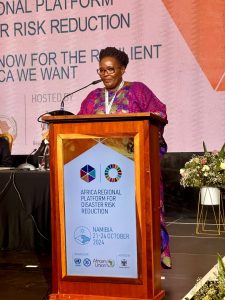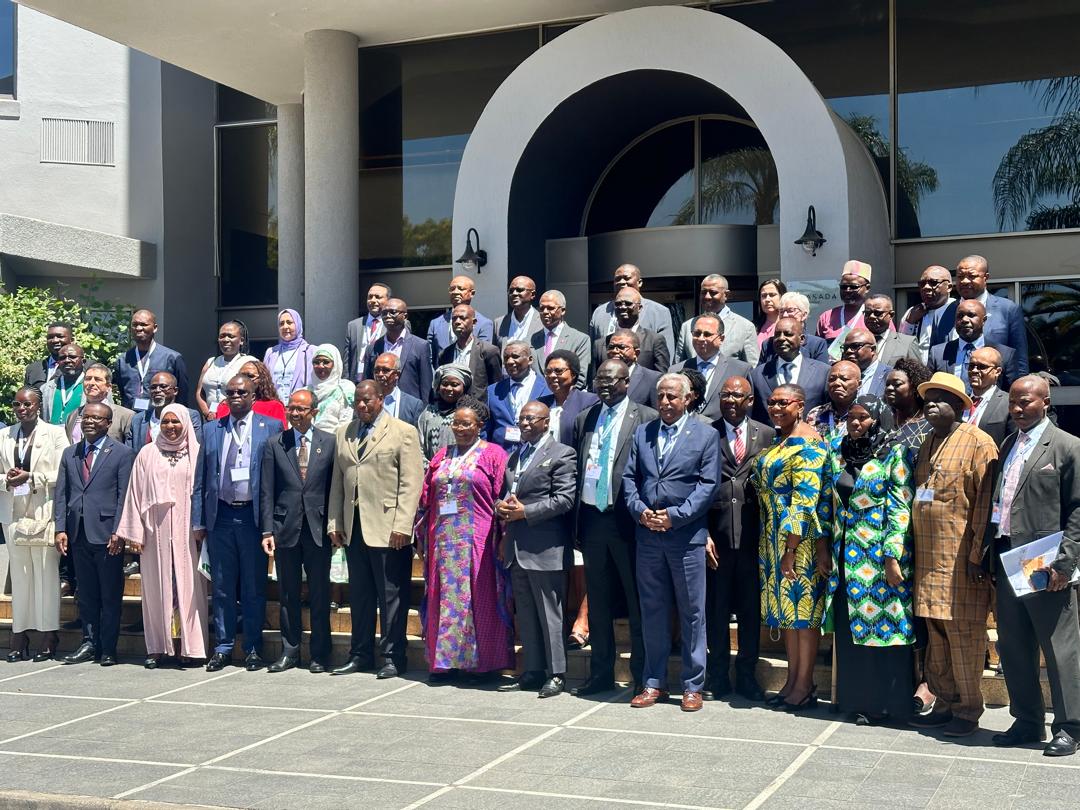By Ncaba Ntshakala
DEPUTY Prime Minister Thulisile Dladla has sounded the alarm over the escalating food insecurity crisis in Eswatini where she highlighted the devastating effects of climate change and socio-economic shocks on the country’s vulnerable populations.
Dladla’s remarks came during the ninth African Regional Platform for Disaster Risk Reduction (AfRP-9), held over four days in Namibia.
The gathering brought together Member States, Regional Economic Communities, civil society organizations, and development partners to assess progress on disaster risk reduction and identify future priorities aligned with the Sendai Framework and Africa’s sustainable development goals.
RELATED: DPM calls for climate change education, warns against wildfires
In her address, Dladla outlined the grim reality Eswatini faces, citing destructive rainfall, severe storms, and prolonged dry spells that have undermined agricultural production.
“While Eswatini may not have faced the usual effects of the El Niño phenomenon in 2023/24 head-on, the persistent dry spells have decimated crop yields and strained rural resilience,” Dladla emphasized.
She reported that maize production for the 2023/2024 agricultural season is 47 per cent below the country’s consumption needs, leaving a grain deficit of 192,000 metric tons that must be addressed through imports.
The DPM expressed grave concern over the growing hunger crisis, revealing that the latest vulnerability assessments project a severe escalation in food insecurity between October 2024 and March 2025.
“Approximately 25 per cent of our population which is around 304,000 people, will experience severe acute food insecurity during this period,” she said.
Dladla warned that these intersecting challenges not only exacerbate hunger but also threaten to deepen the suffering of communities, particularly women and children, who remain disproportionately affected.

Accompanied by key officials, including NDMA CEO Victor Mahlalela, Eric Seyame from NDMA, and Nosizo Mthupha from her office, Dladla stressed the need for urgent, coordinated action at the regional and international levels.
“We urgently request the international and regional community to come together and co-create innovative response strategies,” she stated.
“Addressing the food insecurity crisis calls for holistic and sustainable approaches that can bolster long-term resilience and safeguard the future of our most vulnerable.”
AfRP-9 is a crucial platform for member states to exchange experiences, assess best practices, and align their efforts with the Sendai Framework for Disaster Risk Reduction, which aims to reduce disaster risks globally by 2030.
As part of the discussions, the participating countries sought to forge consensus on future actions to meet their commitments to disaster resilience and ensure alignment with Africa’s broader development frameworks, including Agenda 2063.
RELATED: “Increase in SACU attributable to the people” – DPM
Dladla expressed that addressing Eswatini’s food insecurity crisis requires more than just short-term solutions.
“Developing new ways of working is not only an investment toward improving food security but also a commitment to the shared vision of a resilient and secure Africa,” she said.
She appealed to stakeholders to prioritize measures that restore livelihoods and combat malnutrition, ensuring that “no child goes to bed hungry and no family is left behind.”
The outcomes of AfRP-9, once finalized, will be presented to the African Union’s policy organs for endorsement.
The discussions during the platform were said to highlight the urgent need for African nations to adopt innovative strategies to mitigate the effects of climate change and strengthen resilience against future disasters.


